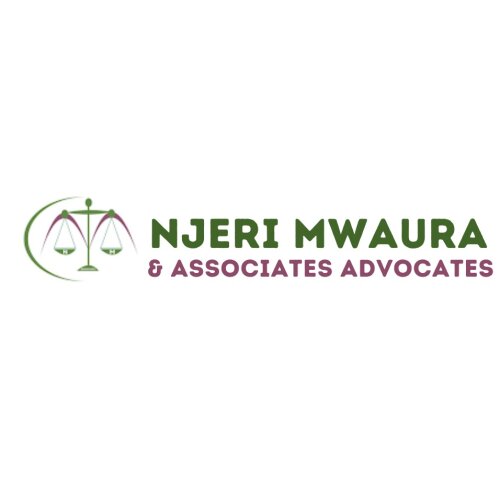Best Lawsuits & Disputes Lawyers in Kenya
Share your needs with us, get contacted by law firms.
Free. Takes 2 min.
Or refine your search by selecting a city:
List of the best lawyers in Kenya
Kenya Lawsuits & Disputes Legal Questions answered by Lawyers
Browse our 2 legal questions about Lawsuits & Disputes in Kenya and read the lawyer answers, or ask your own questions for free.
- Greetings,am in Mombasa, can you take my case ?
- Am based in Mombasa.
-
Lawyer answer by Innovate Advocates LLP
Good afternoon. We are pleased to take up your matter. Kindly furnish us with more details about your case.
Read full answer - Court vs. arbitration/meditation, what's the most beneficial time saving option?
- What is the best course of action for a case against a person abusing their power to cover up abuse crimes ranging from sexual, emotional, physical, financial and mental forms of abuse as well as gang stalking, harassment and intimidation? Is it court or an arbitration/meditation situation?
-
Lawyer answer by hbabknka
This is best pursued through a criminal case. Report him to the police and allow them to investigate, a lawyer can help you monitor how the prosecution will handle the case. Additionally, you can sue him in a civil court...
Read full answer
About Lawsuits & Disputes Law in Kenya
Lawsuits and disputes law in Kenya encompasses the legal frameworks and judicial processes that govern how conflicts and disagreements between individuals, organizations, and government entities are resolved. The legal system in Kenya is based on a combination of statutory law, common law, and traditional African customs as recognized by the Constitution of Kenya. Disputes can range from commercial disagreements, personal injury claims, family disputes, to property litigation. The judiciary, comprising various courts including the High Court, Magistrate's Courts, and specialized tribunals, plays a pivotal role in adjudicating these matters. Alternative Dispute Resolution (ADR) methods such as mediation and arbitration are also encouraged to provide efficient and amicable solutions.
Why You May Need a Lawyer
There are numerous situations in Kenya where legal expertise in lawsuits and disputes is necessary. Common scenarios include:
- Commercial Disputes: Business conflicts, including breach of contract or partnership disagreements, often require legal intervention to resolve complex issues.
- Family Matters: Divorce, child custody, and inheritance disputes can be highly contentious and emotionally charged, needing legal guidance.
- Personal Injury Claims: Legal advice can help navigate compensation claims following accidents or negligence.
- Land and Property Disputes: Discrepancies over land ownership, boundary issues, and tenancy disagreements often involve litigation.
- Consumer Rights Issues: Legal support may be needed to address grievances related to defective goods or poor service delivery.
Local Laws Overview
Lawsuits and disputes in Kenya are governed by several key legal statutes and principles:
- The Constitution of Kenya (2010): Provides the supreme law of the land and establishes the framework for the administration of justice.
- Civil Procedure Act and Rules: These outline the processes for civil litigation, ensuring orderly resolution of civil disputes.
- The Arbitration Act: Promotes arbitration as an alternative means to settle disputes, supporting quicker and less adversarial resolutions.
- The Land Registration Act: Regulates issues relating to land ownership and registration, critical in resolving land disputes.
- The National Land Commission: Plays a key role in governing land issues, including dispute resolution.
Frequently Asked Questions
What is the first step in filing a lawsuit in Kenya?
The first step involves the plaintiff drafting and filing a plaint or complaint with the relevant court, outlining the basis of the claim and the relief or compensation sought.
How long do I have to file a lawsuit?
The limitation period varies depending on the nature of the dispute, with most civil claims requiring filing within six years from the date the cause of action arose.
Can disputes be settled out of court?
Yes, parties can opt for Alternative Dispute Resolution (ADR) methods like mediation or arbitration to resolve their conflicts without resorting to litigation.
What are court costs and how are they determined?
Court costs include filing fees, attorney fees, and other legal expenses incurred in the process of litigation, which are determined based on the specific court and nature of the claim.
What if I lose my case?
If you lose your case, you may be liable for the legal costs of the other party. You also have the right to appeal the decision to a higher court if you believe there was a legal error.
How long does it take for a lawsuit to be resolved?
The duration of a lawsuit varies, depending on the complexity of the case, the court's schedule, and the willingness of parties to resolve the matter swiftly.
Who can represent me in court?
Generally, a licensed advocate who is a member of the Law Society of Kenya (LSK) can represent you in legal proceedings in court.
What are my rights during a dispute process?
Your rights include access to legal representation, a fair hearing, the right to appeal, and the ability to seek alternative dispute resolution methods.
How do I enforce a court judgment?
If you receive a favorable judgment, you can enforce it through mechanisms like garnishment, property liens, or court orders compelling action.
Can foreign nationals engage in lawsuits in Kenya?
Yes, foreign nationals can engage in legal proceedings in Kenya but may require representation by a local advocate.
Additional Resources
If you are seeking more information or assistance regarding lawsuits and disputes in Kenya, consider reaching out to the following:
- The Law Society of Kenya (LSK)
- Office of the Attorney General
- The Kenya Judiciary
- National Legal Aid Service
- Consumer Protection Advisory Committee
Next Steps
If you need legal assistance in lawsuits and disputes in Kenya, here's how to proceed:
- Identify the nature of your dispute and determine if legal action is necessary.
- Consult a qualified lawyer to assess the strength of your case and guide you through the legal process.
- Ensure you have all relevant documentation and evidence to support your claim or defense.
- Consider alternative dispute resolution options if appropriate.
- Keep track of all legal proceedings and maintain communication with your lawyer throughout the process.
Lawzana helps you find the best lawyers and law firms in Kenya through a curated and pre-screened list of qualified legal professionals. Our platform offers rankings and detailed profiles of attorneys and law firms, allowing you to compare based on practice areas, including Lawsuits & Disputes, experience, and client feedback.
Each profile includes a description of the firm's areas of practice, client reviews, team members and partners, year of establishment, spoken languages, office locations, contact information, social media presence, and any published articles or resources. Most firms on our platform speak English and are experienced in both local and international legal matters.
Get a quote from top-rated law firms in Kenya — quickly, securely, and without unnecessary hassle.
Disclaimer:
The information provided on this page is for general informational purposes only and does not constitute legal advice. While we strive to ensure the accuracy and relevance of the content, legal information may change over time, and interpretations of the law can vary. You should always consult with a qualified legal professional for advice specific to your situation.
We disclaim all liability for actions taken or not taken based on the content of this page. If you believe any information is incorrect or outdated, please contact us, and we will review and update it where appropriate.
Browse lawsuits & disputes law firms by service in Kenya
Kenya Attorneys in related practice areas.
Browse lawsuits & disputes law firms by city in Kenya
Refine your search by selecting a city.

















